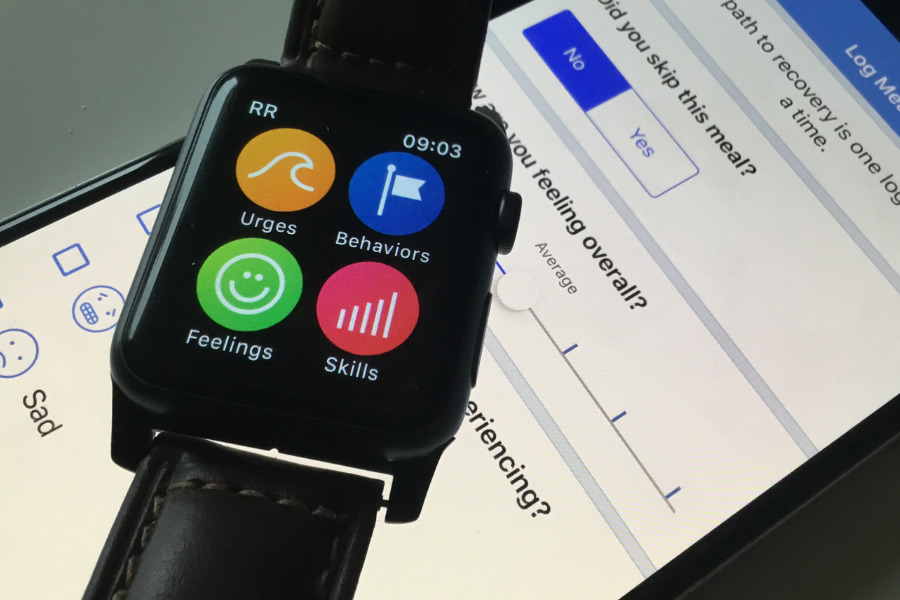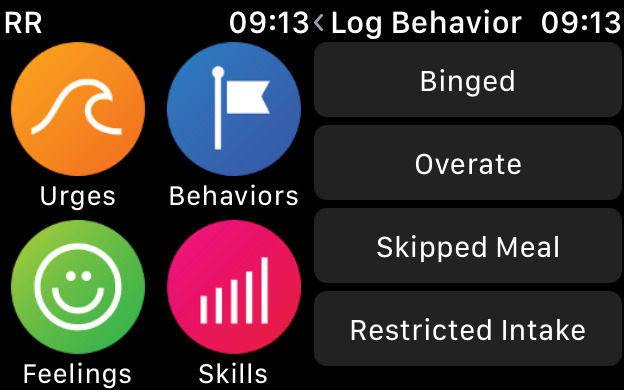Together with a separate logging app, Apple Watches will be used to look for biological changes during episodes of uncontrollable eating.
Apple is donating 1,000 Apple Watches to a new research study into overeating being and bulimia nervosa conducted by the University of North Carolina, reports CNBC.
The Binge Eating Genetics Initiative, or BINGE, is looking for biological changes brought on by either rapid and excessive eating, or by subsequently over-exercising or purging. In a month-long study, researchers will examine whether Apple Watch's heart rate sensor can detect physical changes associated with these symptoms.
According to the National Association of Anorexia Nervosa and Associated Disorders, at least 30 million Americans suffer from an eating disorder. And every 62 minutes, at least one person dies as a direct result of it.
Cynthia Bulik is one of the researchers behind BEGIN and author of Binge Control: A Compact Recovery Guide. She will be recruiting 1,000 volunteers, all aged 18 or over, who have a history of bulimia nervosa or binge eating disorder.
"We need to collect data from a whole lot of people to see what it looks like," said Bulik. "We want to know if it has a biological and behavioral signature."
Alongside the health data and specifically heart rate information automatically collected by the Apple Watch, volunteers in the program will have a Watch and iOS app called Recovery Record.
The app is for volunteers on the study to record detailed information about their eating patterns and how they feel about that eating. An Apple Watch companion app provides a quick way to record feelings and behaviors.
Recovery Record CEO Jenna Tregarthen said, "We're interested to find out what happens in the time period leading up to the binge and the purge. And we hope we can anticipate and ultimately change the course of that episode."
Participants who take part in the study will also receive tests for genetics and bodily bacteria, examinations that seek to expose the underlying cause of the disease, the report said.
The UNC research is just the latest of many health-related studies that have deployed Apple Watch to provide continuous medical data from patients or volunteers.
The University of California used the Apple Watch last year to research atrial fibrillation, a common heart arrhythmia that can lead to strokes. This study learned that Apple Watch could then detect serious heart conditions with 97 percent accuracy.
That study was conducted in partnership with an app called Cardiogram, and in August 2018, the app's developer Brandon Ballinger told AppleInsider how health studies were increasingly using the Apple Watch as a research tool. He said that based on data collected by the app, the average Apple Watch user is "more likely than the general population to manage a chronic health condition like sleep apnea, hypertension, diabetes or atrial fibrillation."
Reportedly, it is data like this that helped Apple gain FDA approval for its new Apple Watch ECG feature.
 William Gallagher
William Gallagher









-m.jpg)






 Wesley Hilliard
Wesley Hilliard
 Christine McKee
Christine McKee
 Malcolm Owen
Malcolm Owen

 Andrew Orr
Andrew Orr







-m.jpg)




15 Comments
Childhood trauma... uses food to protect certain feelings from being seen. Boom.
Series 4?
And what happens when the program ends? Apple come to collect the watch back?
This is very cool, always good to see some positive news for once!
So the heart rate sensor is why this is a Watch study? I’m assuming you could just as easily record behavioral information via your iPhone.